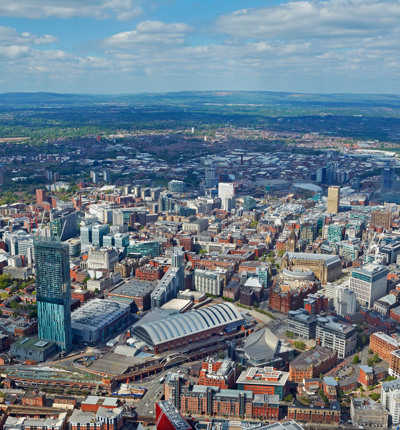
Greater Manchester disability campaigners appeal to Andy Burnham over pledge to remove barriers on public pathways
A number of organisations have written to Andy Burnham to ask for wider action over a pledge to remove barriers on public pathways across the region.
Posted on 07 November 2024
The groups are asking for a meeting to discuss the accessibility issues they face because of over 1,400 barriers on rights of way across the 10 Greater Manchester Authorities.
Manchester City Council set a deadline to remove the problematic barriers on walking and cycling paths on its land ‘by 2024’. While councils such as Manchester and Stockport have made some recent progress in this area, campaigners say that barriers look set to remain in place across the majority of the network for the foreseeable future.
Campaigners want barriers urgently reviewed and removed by all of the 10 authorities across Greater Manchester, and believe Mr Burnham holds the key to making that happen.
The campaigners, represented by law firm Leigh Day, have written to Mr Burnham to explain that the design and layout of the barriers make the paths inaccessible to those using non-standard cycles, which are commonly used by disabled people.
They say the layout of the barriers also means people using other kinds of mobility aids, such as disabled parents with young children in prams or buggies, cannot enjoy the routes.
The barriers across Greater Manchester are often justified by local authorities as being a preventative measure to deal with motorbike related anti-social behaviour.
But the barriers – which are generally A-frame or chicane designs with narrow gaps – bar the way to those using non-standard cycles such as handcycles or recumbent bikes. and are often ineffective at preventing access to motorcycles, electric bikes and scooters.
It is also understood that the barriers can cause issues for people with sensory impairments, with bollards often not clearly marked and the narrowing tops of A-frames unsafe for those with limited vision.
The groups asking for a meeting with Mr Burnham include the national governing board for cycle sport British Cycling, Greater Manchester Coalition of Disabled People, Wheels for Wellbeing and Walk Ride Greater Manchester.
Their letter to the Greater Manchester mayor poses questions about the legality of the barriers and requests that a detailed review is taken place with an end goal of removing all discriminatory barriers on public rights of way across Greater Manchester.
Participants in Stockport and Manchester are already taking part in research to develop an evidence base on the usage levels (including anti-social use) of traffic-free routes when access control barriers are removed.
While authorities in Greater Manchester have indicated they will have staff on site to remove barriers in early 2025, campaigners are aiming to ensure a firm written and financial commitment is made, particularly with Manchester City Council’s previous deadline of ‘by 2024’ set to pass without the necessary work having been done.
A map of the barriers across Greater Manchester compiled by campaigners can be found here.
National disability manager at British Cycling, Lyndsey Holland, said:
“British Cycling's vision is to bring the joy of cycling to everyone. This includes disabled people. As the national governing body of the sport of cycling, we support the removal of barriers that prevent access to the city's cycle routes, and in turn promote opportunities for disabled people to have equal access to cycling.”
Campaigner and active travel researcher Dr Harrie Larrington-Spencer said:
“The barriers in place on pathways across cities and towns make active travel for disabled people unnecessarily difficult. The narrow gaps in these barriers are almost impossible for adapted bikes and other mobility devices to navigate without disassembling first. As well as making travel on these public rights of way much more of a challenge than it should be, the barriers leave disabled people vulnerable and often reliant on passers-by for assistance if travelling alone. We are eager to speak with the authorities in Greater Manchester to discuss how they can improve the accessibility of these pathways.”
Campaigns and policy manager at Wheels for Wellbeing, Dr Kay Inckle, said:
“These barriers prevent disabled people from accessing public spaces and amenities. It cannot be right that anti-social behaviour perpetrated by some members of society is a justification for excluding disabled people. We look forward to seeing these barriers removed so that disabled people in Greater Manchester have the same rights of access as everyone else.”
Leigh Day partner Ryan Bradshaw said:
“We do not think that it is right that disabled people are prevented from accessing large numbers of cycle routes and public rights of way across Greater Manchester. It is not good enough to set out plans that go nowhere - disabled people have waited long enough, we need to see action being taken now.”

British Medical Association welcomes court ruling removing disadvantage for trainee GPs with disability
The British Medical Association (BMA) has welcomed a court ruling that removes a disadvantage for disabled candidates training to be GPs.

Man with learning disabilities settles claim against Cygnet Healthcare for alleged physical and emotional harm
A young autistic man with learning disabilities has settled a legal claim against Cygnet Healthcare, after it was alleged he received negligent treatment while staying at a specialist care unit.


